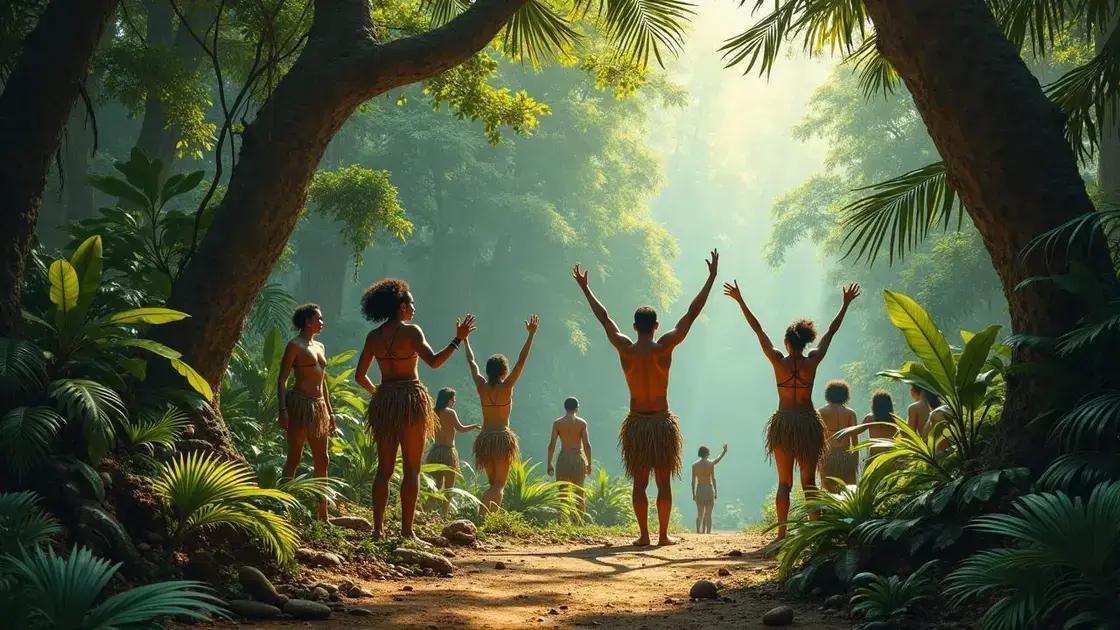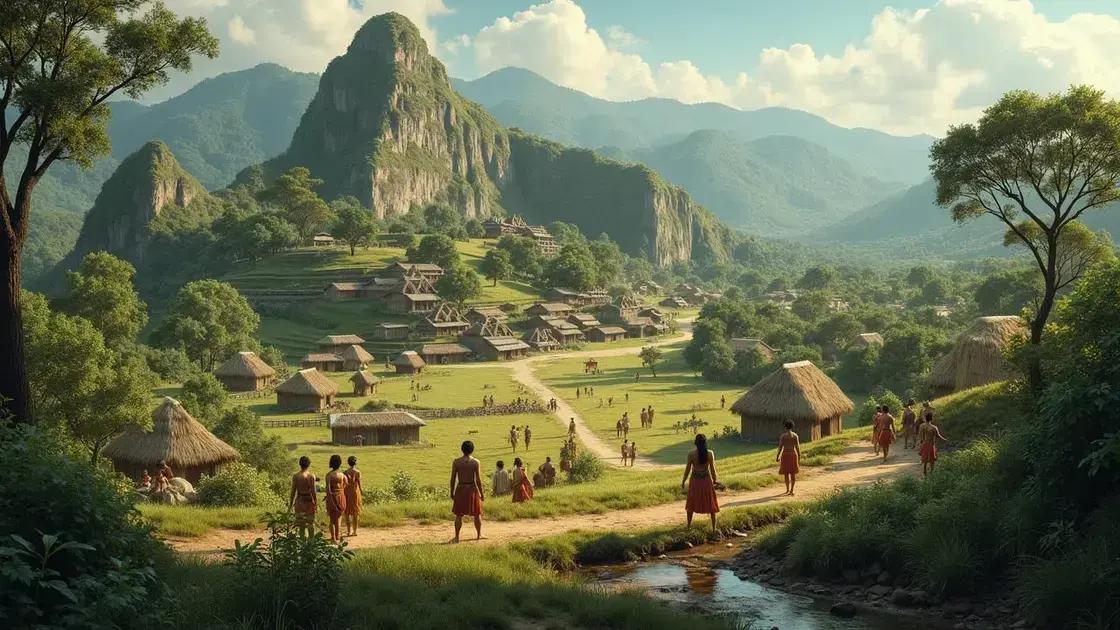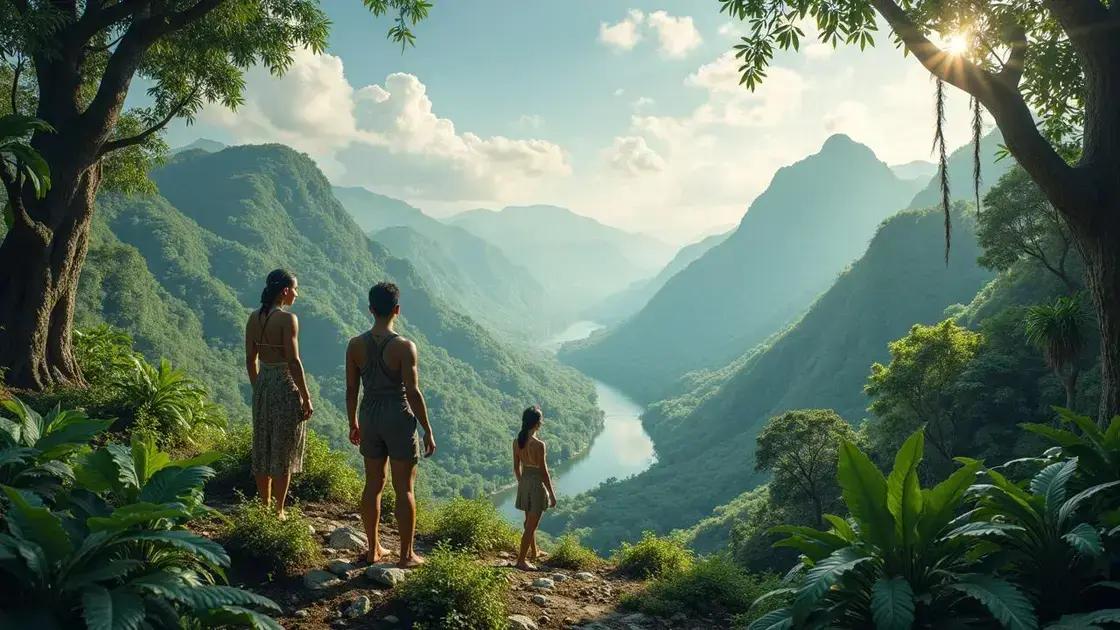Amazonic Power refers to the unique blend of environmental strength, cultural heritage, and historical resilience found in the Amazon rainforest and its indigenous peoples, making it vital for ecological balance and cultural identity, while facing modern challenges like deforestation and climate change.
What is the origin of Amazonic Power? This question opens a gateway to exploring the rich, intricate history and significance of a concept that embodies strength and resilience. From ancient times to the present, Amazonic Power has influenced countless lives and cultures. In this article, we will delve into its origin, uncover its historical roots, and examine its modern-day impact across various aspects of society.
Understanding Amazonic Power

Amazonic Power is a term that refers to the unique strength and resilience of the Amazon region and its people. This power encompasses the natural resources, cultural heritage, and spiritual beliefs found within this vast ecosystem. The Amazon rainforest, the largest tropical rainforest in the world, plays a significant role in global ecology by regulating the climate and serving as a carbon sink.
Components of Amazonic Power
Several key components contribute to the concept of Amazonic Power. First, the biodiversity of the Amazon is unparalleled, hosting millions of species, many of which are yet to be discovered. This biological richness offers medicinal potential and contributes to sustainable practices for the local communities.
Indigenous Communities and Their Role
Indigenous peoples of the Amazon have been the stewards of the land for centuries. Their deep-rooted knowledge of the environment allows them to manage resources sustainably. They practice traditional agriculture and hunting techniques that respect ecological balances, showcasing their connection to the land.
Spiritual and Cultural Significance
In addition to its physical aspects, Amazonic Power has deep spiritual and cultural significance. Many indigenous groups believe that the forest is alive and holds spirits that must be honored. Rituals, stories, and art play a vital role in preserving their identity and educating future generations about their heritage.
Challenges Threatening Amazonic Power
Despite its resilience, Amazonic Power faces numerous challenges. Deforestation, mining, and illegal logging threaten biodiversity and disrupt the cultures of the indigenous peoples. Climate change poses additional risks, altering weather patterns and impacting the delicate balance of the ecosystem. Protecting Amazonic Power is crucial, not just for the local communities, but for the global environment as well.
Historical Background of Amazonic Power

The historical background of Amazonic Power is deeply intertwined with the long-standing traditions and practices of the indigenous tribes. These tribes have inhabited the Amazon region for thousands of years, forming complex societies that value their environment. They developed sustainable ways to utilize the land, ensuring the health of the ecosystem.
Early Societies in the Amazon
Before European contact, the Amazon was home to many sophisticated civilizations. They built large settlements and engaged in agriculture, growing crops such as maize and manioc. The evidence of these early societies shows a dependence on the rich resources of the rainforest.
Impact of European Colonization
The arrival of Europeans in the 16th century marked a dramatic shift in the history of Amazonic Power. Colonizers exploited the land for resources, fundamentally disrupting indigenous cultures. This led to the decline of many tribes and the loss of traditional knowledge about sustainable practices.
Resistance and Resilience
Throughout history, indigenous groups have fought to maintain their culture and rights. Movements for land rights and environmental protection have emerged, highlighting their connection to Amazonic Power. These movements showcase the resilience and strength of indigenous peoples against external pressures.
Modern Recognition
In recent decades, there has been a growing recognition of the importance of Amazonic Power for environmental conservation. Studies show that indigenous stewardship of the land is vital for preserving biodiversity. Initiatives focused on protecting indigenous lands aim to restore some of the power lost through colonization.
Cultural Significance of Amazonic Power

The cultural significance of Amazonic Power lies not only in its ties to the environment but also in the narratives and traditions of its people. These cultures reflect a deep connection to the Amazon rainforest, which shapes their identities and ways of life.
Traditions and Rituals
Many indigenous communities engage in rituals that honor their relationship with nature. These ceremonies often include songs, dances, and storytelling. They celebrate the forest’s spirits and express gratitude for the resources it provides. Participation in such traditions strengthens community bonds and preserves cultural heritage.
Art and Craftsmanship
Amazonic cultures are known for their unique art forms. Through vibrant paintings, intricate carvings, and detailed weavings, artisans express their connection to the natural world. These artistic expressions often depict scenes from daily life, myths, and the animals and plants of the rainforest.
Language and Knowledge
The languages spoken by Amazonian tribes carry vast amounts of ecological knowledge. They include names for countless plants and animals, reflecting a sophisticated understanding of their environment. This knowledge is passed down through generations, helping communities manage their resources sustainably.
Preserving Identity
Amazonic Power is also crucial for preserving the identity of indigenous peoples in the face of modern challenges. As globalization threatens traditional ways of life, these cultures use their teachings and practices to maintain their distinct identities. Advocacy for their rights and lands reinforces their cultural significance in today’s world.
Modern Impacts of Amazonic Power

The modern impacts of Amazonic Power can be seen in various areas, from environmental conservation to social movements. As awareness of the importance of preserving the Amazon rainforest grows, the significance of Amazonic Power becomes even clearer.
Environmental Conservation
Today, the Amazon rainforest is crucial for combating climate change. Its vast trees absorb carbon dioxide, which helps regulate global temperatures. Understanding Amazonic Power enables us to appreciate the vital role this ecosystem plays in maintaining environmental balance.
Indigenous Rights Movements
Modern movements advocating for the rights of indigenous peoples highlight the need to protect Amazonic Power. As various organizations rally behind these communities, they emphasize the importance of land rights and sustainable practices that have been maintained for generations.
Tourism and Local Economies
Eco-tourism has emerged as a significant way to capitalize on Amazonic Power. People travel to the Amazon to experience its beauty and biodiversity. This influx of visitors can support local economies while promoting conservation awareness among tourists.
Global Awareness and Activism
In recent years, global activism surrounding the Amazon has grown. Social media campaigns raise awareness about deforestation and pollution, rallying support for preservation efforts. This activism connects individuals worldwide to the concept of Amazonic Power, reinforcing its importance beyond local communities.
In Conclusion: The Significance of Amazonic Power
The exploration of Amazonic Power reveals its profound influence on our environment, cultures, and global awareness. From the rich traditions of indigenous peoples to the modern movements advocating for their rights, Amazonic Power stands as a testament to resilience and sustainability.
In contemporary times, understanding and honoring Amazonic Power is crucial for addressing climate change and protecting biodiversity. It fosters a deeper appreciation of the Amazon rainforest’s vital role in our planet’s ecosystem.
Through eco-tourism, activism, and conservation efforts, we can support both the Amazon and its people. A united global effort is essential for the preservation of this remarkable region and its cultural significance.
Thus, recognizing what Amazonic Power represents encourages us to actively participate in promoting sustainability and honoring the natural world.
FAQ – Frequently Asked Questions about Amazonic Power
What is Amazonic Power?
Amazonic Power refers to the unique strength and resilience of the Amazon rainforest and its indigenous peoples, encompassing environmental, cultural, and historical aspects.
How does Amazonic Power impact the environment?
Amazonic Power plays a vital role in climate regulation and biodiversity, as the Amazon rainforest acts as a significant carbon sink and habitat for countless species.
Why is the cultural significance of Amazonic Power important?
The cultural significance highlights the deep connection indigenous peoples have with the land, preserving traditions, knowledge, and identity that are vital for sustainable practices.
What modern challenges does Amazonic Power face?
Modern challenges include deforestation, pollution, and the impacts of climate change, which threaten the biodiversity and cultural practices tied to Amazonic Power.
How can I support the preservation of Amazonic Power?
You can support preservation efforts through eco-tourism, activism, and by advocating for indigenous rights and sustainable practices in the Amazon.
What role does indigenous knowledge play in Amazonic Power?
Indigenous knowledge is essential for managing resources sustainably and understanding the ecosystem. It is pivotal for conservation efforts and preserving cultural identity.












